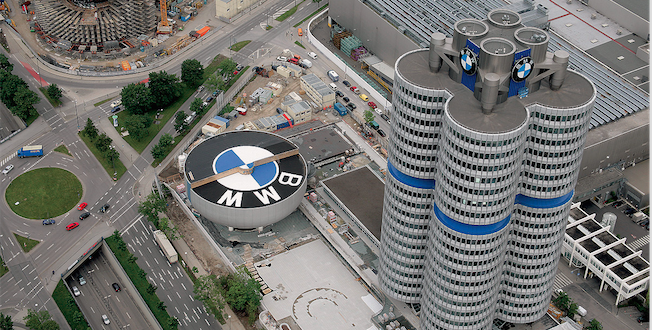…Insists its specific technology secures low emissions in real-life driving
The BMW Group on Sunday vehemently rejected accusations that it manipulated the engines of its cars to beat emission regulations. The German carmaker also denied the accusation that it connived with other carmakers to fix the prices and designs of diesel emissions treatment systems and other vehicle parts.
A German magazine, Der Spiegel, had made the allegations in its report on Friday, listing BMW, VW , Audi and Porsche as co-conspirators in the alleged manipulations. The magazine alleged that BMW’s diesel cars with Euro 6 engines do not provide adequate exhaust treatment because the AdBlue tanks – that inject urea solution as part of the process – are too small.
Recall that Euro 6, the current emissions standard set by European regulators, came into force a few years ago. The allegations thus triggered the European Commission into action once again, saying EU antitrust regulators would get to the end of the matter even as calls were made for tough sanctions if the allegations were found to be true.
But in a statement issued in Munich on Sunday, BMW said nothing of such happened, stressing that “As a matter of principle: BMW Group vehicles are not manipulated and comply with respective legal requirements.”
BMW’s full statement reads: “Due to current media reports, the BMW Group considers it has become necessary to make its position regarding recent allegations clear.
“As a matter of principle: BMW Group vehicles are not manipulated and comply with respective legal requirements. Of course, this also applies to diesel vehicles. Confirmation of this is provided by the results of relevant official investigations at the national and international level.
“The BMW Group categorically rejects accusations that Euro 6 diesel vehicles sold by the company do not provide adequate exhaust gas treatment due to AdBlue tanks that are too small.
“Technology employed by the BMW Group is clearly differentiated from other systems in the market. We compete to provide the best exhaust treatment systems: unlike other manufacturers, BMW Group diesel vehicles employ a combination of various components to treat exhaust emissions. Vehicles which use urea injection with AdBlue (SCR) to treat exhaust emissions also employ a NOx-storage catalytic converter. With this combination of technologies, we fulfil all legal emissions requirements and also achieve a very good real- life emissions performance. This means there is no need to recall or upgrade the software of BMW Group Euro 6 diesel passenger cars.
“In addition, the combination of both systems, together with exhaust-gas recirculation, requires a lower level of AdBlue injection and leads to a very low AdBlue consumption in comparison to other manufacturers. This enables an optimised tank size while also achieving very low emissions in real-driving conditions. Furthermore, BMW Group diesel vehicles have a simple refill solution through the tank lid or engine hood, depending on the model. BMW Group customers are informed by the vehicle in good time and repeatedly concerning a low AdBlue fill level. If this is ignored, the vehicle eventually prevents operation.
“From a BMW Group perspective, the objective of discussions with other manufacturers concerning AdBlue tanks was the installation of the required tanking infrastructure in Europe.
“In addition, the BMW Group confirms its commitment to conduct a voluntary software upgrade of suitable Euro 5 diesel passenger cars at no cost to customers. This upgrade incorporates knowledge gained in the field over the last years to realise further improvements in emissions. We deem this to be a part of a comprehensive and joint plan of measures involving municipalities and the industry, to further improve inner-city air quality without across-the-board driving bans, within the context of the “Diesel Summit” on 2 August 2017. “
 ..:: AUTO REPORT AFRICA ::..
..:: AUTO REPORT AFRICA ::..




